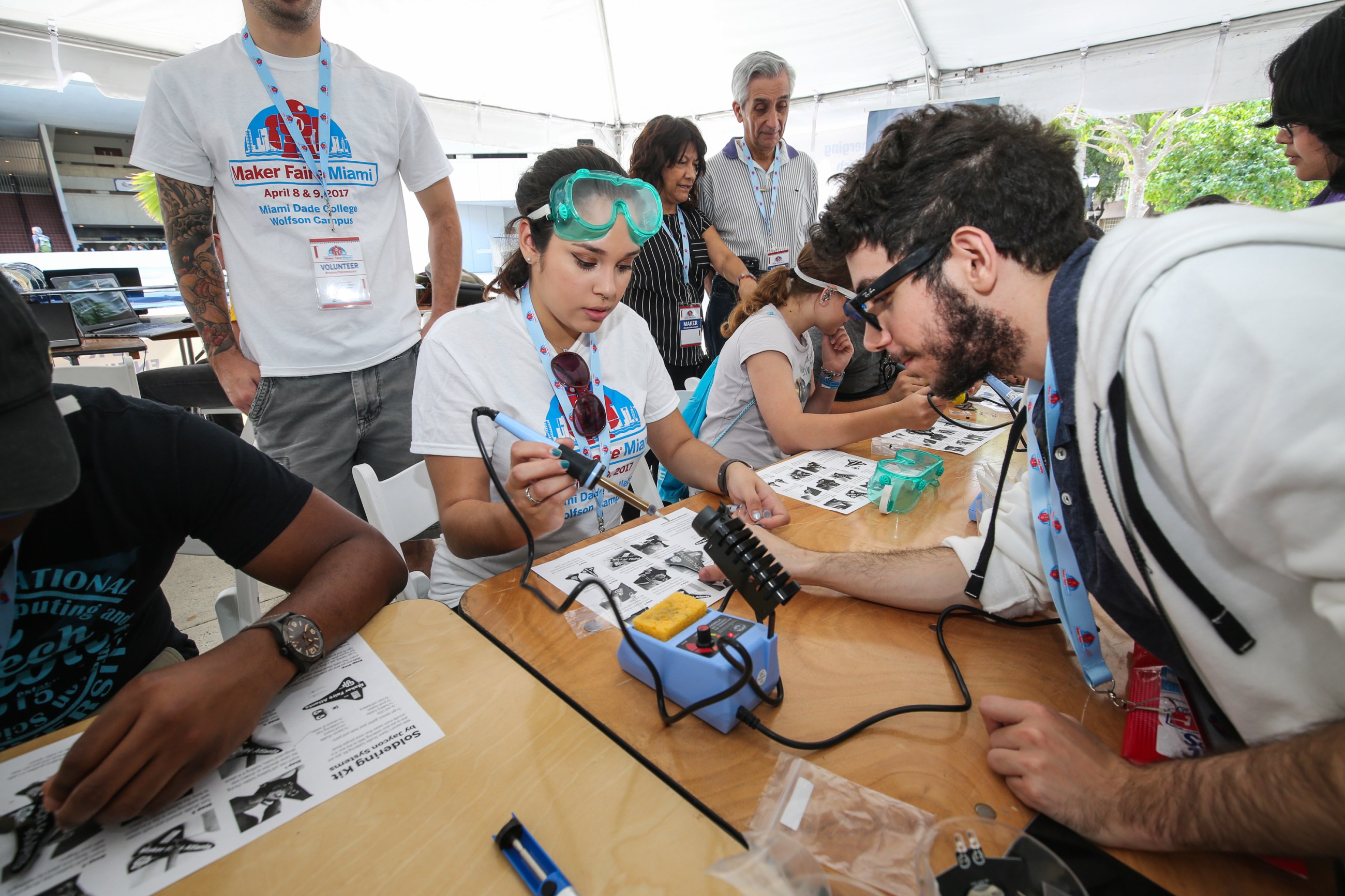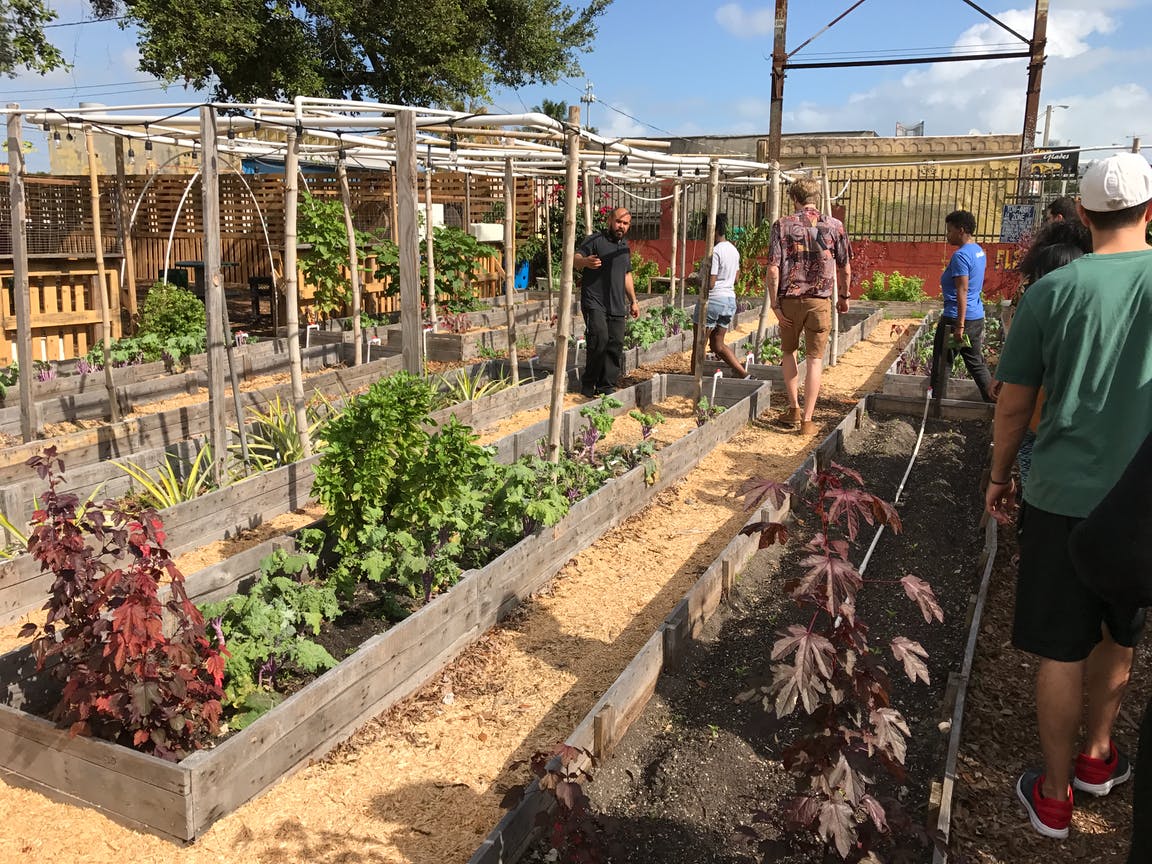
Unlocking urban resiliency by building a collaborative commons
Ric Herrero is co-founder and president of MANO, a nonprofit organization dedicated to fostering a sustainable maker culture in the Greater Miami area. Knight Foundation has supported the evolution of MANO’s work in Miami and recently made an additional funding commitment to the organization.
This year, Miami voters passed the Miami Forever general obligation bond, our city’s first major investment in sustainability. The bond aims to raise $400 million in funding to address interrelated challenges and advance infrastructure upgrades to protect us from sea level rise, expand access to affordable housing and foster economic opportunity.
While the bond is a welcome commitment from government to address pressing local issues, we must remember that resilient communities are built from the bottom-up as much as from the top-down. Already, cities at the forefront of global climate change response are showing us the importance of shifting cultural attitudes toward consumption in order to advance sustainability goals. From San Jose and Boston, to Copenhagen and Seoul, communities are leveraging digital peer-to-peer platforms to democratize production and distribution of food and energy, and change the way residents use and dispose of resources.
Collaborative models such as blockchain and ridesharing apps, and internet-of-things-enabled community solar and urban farming cooperatives are empowering more and more people to see themselves as co-producers (or “prosumers”) of the goods and services they enjoy.
Since our launch in 2013, MANO has sought to explore how communal models of peer-to-peer collaboration – particularly those associated with the Maker Movement and its focus on open-source design and localized production – can be leveraged to address social challenges. Our events and initiatives have fostered a deeper understanding in our community of how digital tools can empower people to work together to solve pressing urban problems, such as bridging the digital learning gap and building climate-resilient systems.
Building on this success, our 2018 Maker City Miami initiative will foster cross-disciplinary collaboration at the intersection of cyberspace and public spaces. It will engage entrepreneurs, local creatives, city officials and civil society groups to activate our urban commons and catalyze Miami’s transition to a low carbon economy.

The initiative kicks off with the fifth annual Maker Faire Miami from April 7-8, 2018, a weekend-long festival of creativity, resourcefulness and invention in celebration of the Maker Movement. Co-produced by Miami Dade College and in collaboration with Maker Media, Maker Faire Miami showcases the work of do-it-yourself innovators in technology, education, craftsmanship and food production, spanning South Florida and through the Americas and Europe. Maker Faire Miami is now one of the larger maker events in a global network of over 140 festivals in cities including San Mateo, California; New York; Rome, Italy; Paris, France; Tokyo, Japan; and Shenzhen, China.
Also returning are our two innovation challenges, Great Miami Makeathon and 10x10KCuba. These invite up-and-coming entrepreneurs in Florida and their counterparts in Cuba to find technology-driven solutions to urban challenges.
In addition to our pre-existing programs, we’re kicking off a pilot for an Urban Prototyping Festival, which will seed prototypes for peer-to-peer models in community energy and food production. This festival, Maker Faire Miami and the Great Miami Makeathon will serve as platforms to generate ideas and expose participants to fresh perspectives in creative collaboration from all around the world. All the initiatives will be curated by MANO’s new creative director, James Brazil, an architecturally-trained designer, master builder and researcher.
MANO will also conduct a feasibility study to visualize, map and analyze the resource and waste streams of food service providers within the Support Local network of small businesses, in collaboration with Prism Creative Group and the University of Miami School of Architecture and Department of Geography – College of Arts and Sciences. The goal of this study is to identify opportunities to establish a community cooperative that will help Support Local businesses reduce operational costs, drive efficiency gains and make investments in sustainability. It will focus on supporting practices such as group procurement of supplies and services, and improved energy use and waste management.
MANO will continue to foster greater collaboration between local makers, educators, entrepreneurs and civic innovators, and enable them to take our resilience-building efforts in Greater Miami to the next level.
Recent Content
-
Community Impactarticle ·
-
Community Impactarticle ·
-
Community Impactarticle ·


